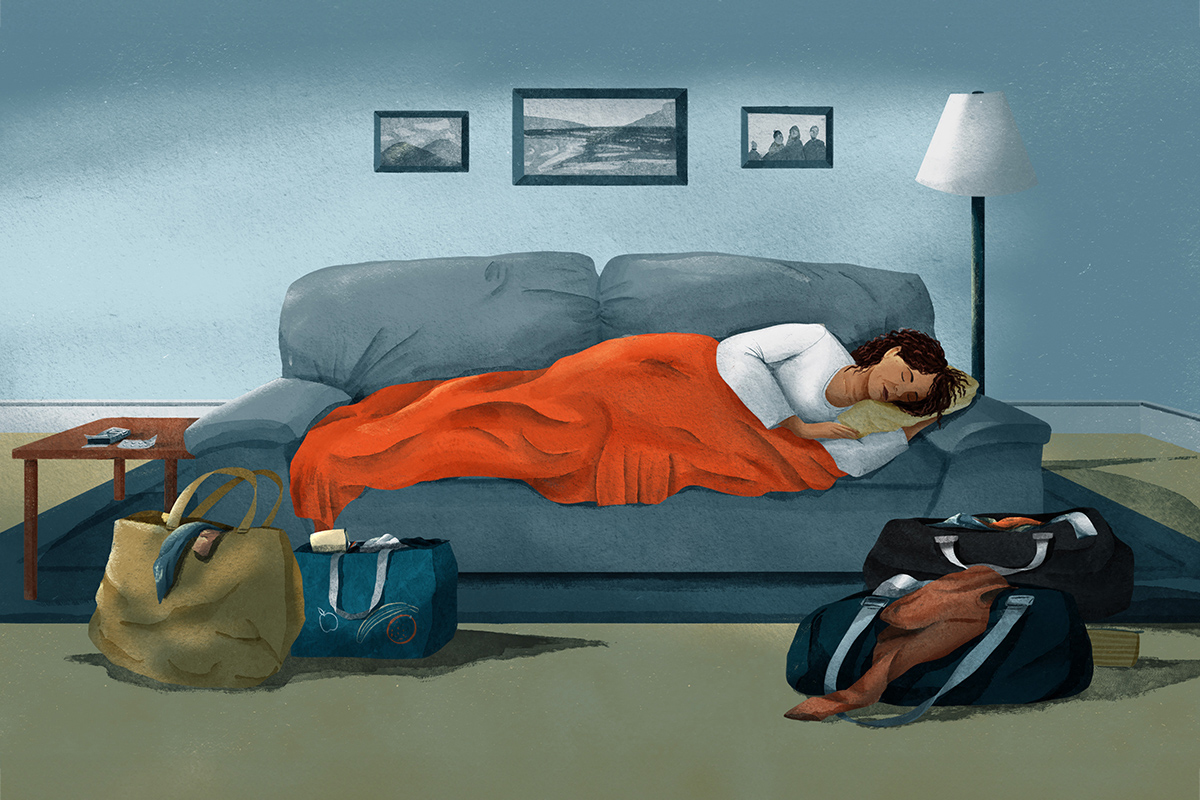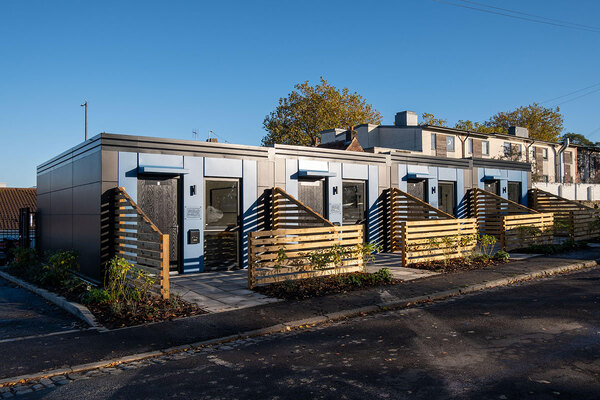Enhanced housing benefit is putting some supported housing charities at risk
The funding cuts and restrictions facing supported housing charities are putting people’s lives at risk, writes Tom Neumark, chief executive at Porchlight, as part of the Reset Homelessness campaign
![]()
Supported housing saves thousands of lives every year – but its future is increasingly uncertain because the funding model is broken.
Supported housing is specialist housing for people experiencing homelessness, mental health problems, domestic abuse or other challenges. When someone is given supported housing, they aren’t just getting a roof over their head. They’ll also receive specialist support that enables them to rebuild their lives and regain their independence.
But there’s a problem. Charities worry that the traditional means of funding it – enhanced housing benefit – no longer works.
I’m the chief executive of one of these charities – Porchlight. We provide supported housing for nearly 200 people facing homelessness in Kent and Bexley. Our story – of funding cuts and fighting against the odds to keep our clients safe – shows why things must change. If they don’t, lives will be at risk.
Many people living in our supported housing have experienced significant trauma. It’s likely they have complex mental health problems and may use drugs or alcohol as a coping mechanism.
In our supported housing, they are helped to address these issues, rebuild their lives and leave homelessness behind for good.
This life-saving work is partially funded by enhanced housing benefit – a payment that’s awarded to providers of supported housing by local authorities. It’s larger than a typical housing benefit payment and is intended to cover some costs of managing housing for people who have multiple support needs.
But there are restrictions around what enhanced housing benefit can be used for. It can’t be used to pay for things like therapy, assistance to reintegrate with the local community, and help to gain employment.
We use our own financial reserves to ensure nobody goes without these important services. It is important people get all the help they need to rebuild their lives. But this isn’t a long-term solution.
When a local authority awards enhanced housing benefit, it is reimbursed by central government, but only if the money has gone to registered providers such a housing association or council-run housing.
Not all charities are registered providers. Because local authorities may not get reimbursed for payments to charities, they’re restricting enhanced housing benefit payments. We understand this is partly due to a tightening of the government’s funding rules following historical abuse of the funding system by a few bad faith actors.
But the result is that charities like Porchlight are having to make up this monetary shortfall out of their own financial reserves, putting their own futures at risk. And we can’t afford to lose charities at a time when people need them more than ever.
The financial challenges created by enhanced housing benefit were amplified last spring when Kent County Council cut homelessness funding. We’ve spent the past year exploring new ways to fund our supported housing by topping up the enhanced housing benefit we do manage to successfully apply for.
“It risks creating a postcode lottery where the supported housing that’s available depends on where you’re based in the county”
It hasn’t been easy, but we think we’ve got a solution that involves working in new ways with district and borough councils and the NHS. The funding they provide, combined with any enhanced housing benefit we’re successful in applying for, should be able to fund all the support that people need.
This comes with its own complications. Each organisation that funds our work will have slightly different measures of success. Our ways of working will have to change to accommodate these.
And funding may differ in different parts of Kent, depending on where each organisation is based. It risks creating a postcode lottery where the supported housing that’s available depends on where you’re based in the county.
But we’re very grateful for everyone who’s working with us. If this approach protects supporting housing and saves lives, it’s worth doing.
This never should have happened. When it comes to supporting vulnerable people, enhanced housing benefit isn’t enough to cover all the life-saving work that happens in supported housing. It’s important, of course, but should only be seen as part of the funding puzzle.
That’s why the government needs to include plans for fully funded, high-quality supported housing in its vision for ending homelessness. Porchlight is one of many charities that will have been affected in this way. And for every charity that’s affected, many lives will be on the line.
Because ending homelessness is about investing in professional support as well as property. To put it bluntly – housing without proper staffing and support can be damaging. Housing with proper staffing and support gives people a chance to rebuild.
Tom Neumark, chief executive, Porchlight
Sign up for our homelessness bulletin
Already have an account? Click here to manage your newsletters













